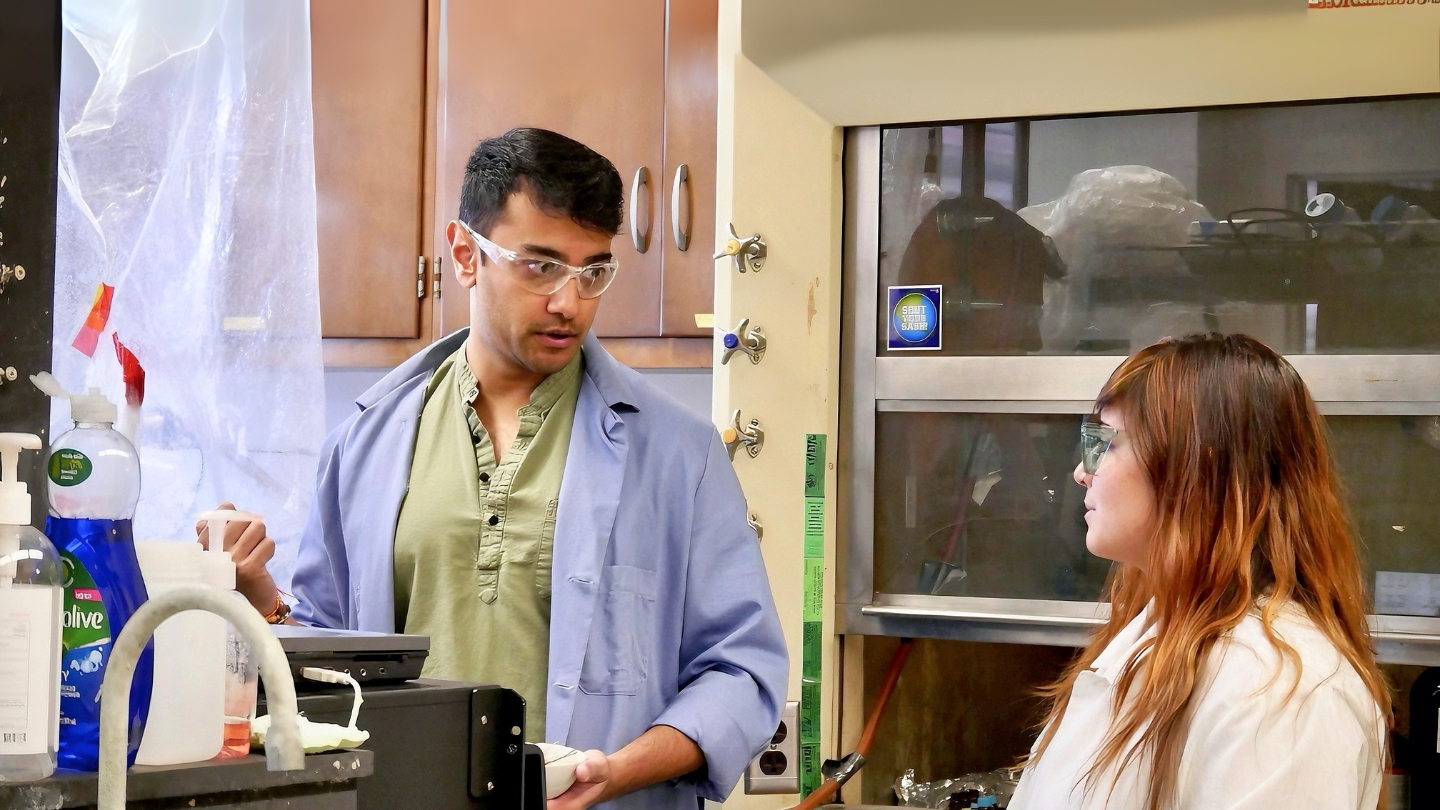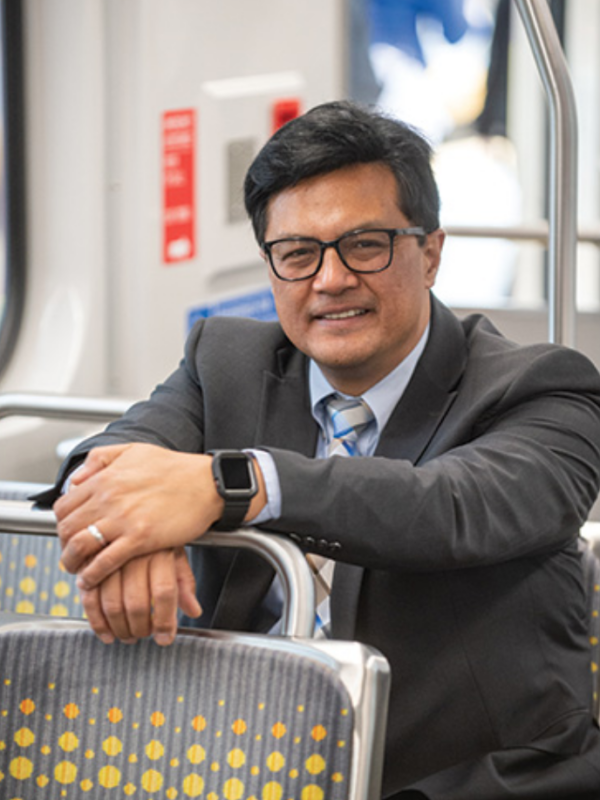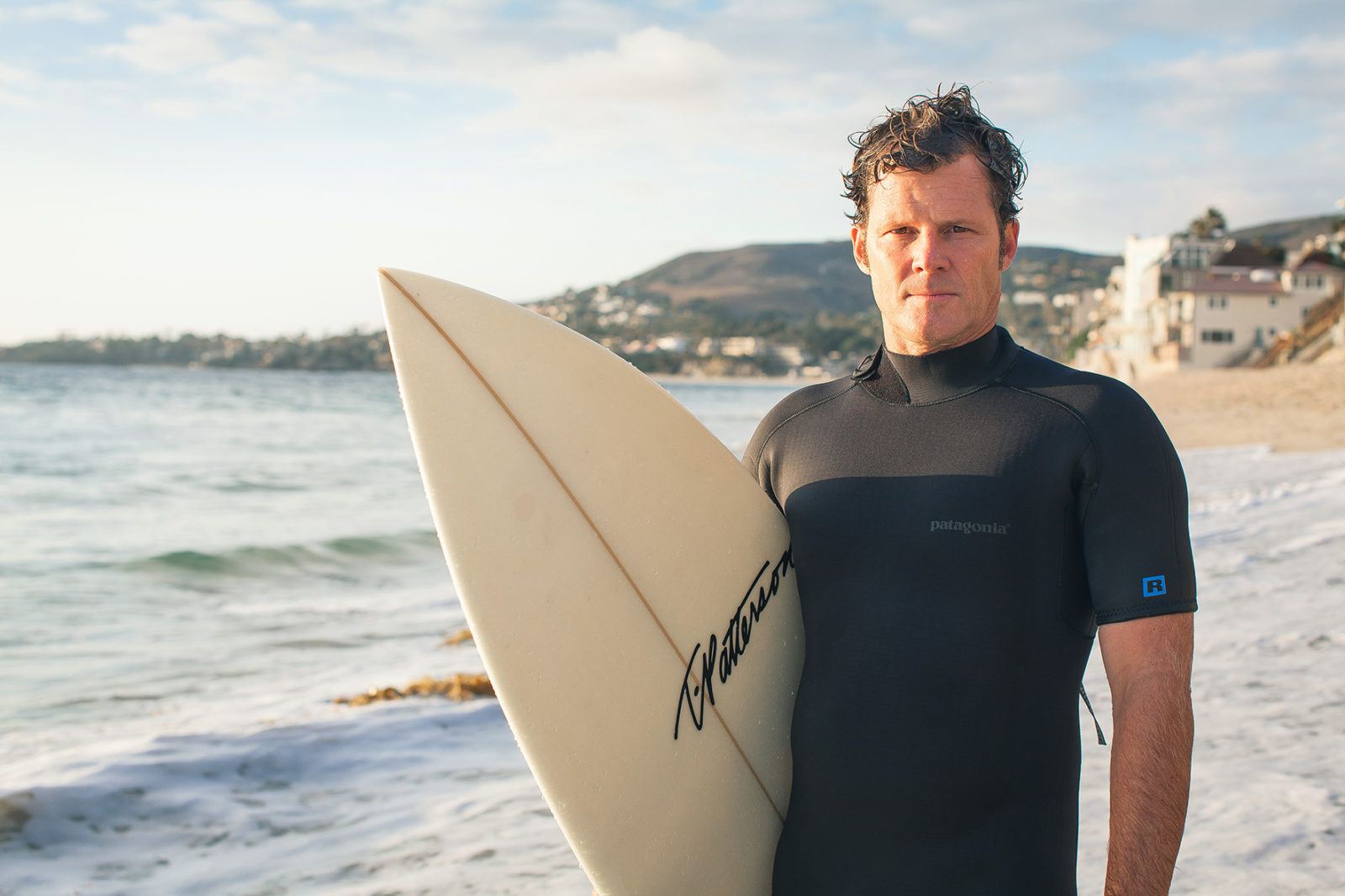
Solutions Course

The next generation of master environmental problem solvers are trained here. Our academically diverse, practice-intensive method prepares graduates to take on today’s most complex environmental problems. The Environmental Science and Engineering professional doctorate was founded by Nobel laureate Willard Libby in 1973. Since then, more than 260 graduates have gone on to take senior leadership positions at places such as the Environmental Protection Agency, the Walt Disney Company, the Army Corps of Engineers and AECOM.
The residency embeds students with public agencies, businesses and environmental groups to provide practical experience in environmental analysis and management. While students work, they conduct applied dissertation research under the supervision of UCLA faculty.
LEARN MORE
Solutions Course

Cris B. Liban is dedicated to the sustainability of the county's environment, economy, people, and beyond. He oversees Los Angeles Metro’s internationally recognized environmental, sustainability and energy initiatives and since 2005 has led the first and most comprehensive sustainability and resiliency program in the transit industry. As L.A. Metro’s executive for environmental compliance and sustainability, he developed the agency's first Power Purchase Agreement and has run the first EV charger system owned by a transit agency. His commitment has improved the environmental quality of the agency’s infrastructure and service while delivering projects that are equitable, diverse, inclusive, resilient and sustainable without driving up costs.

Jenny Aleman-Zometa
D. Env. 2024